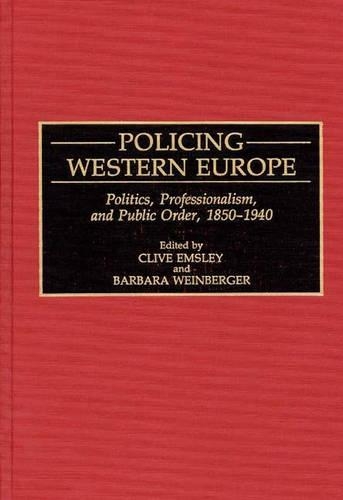
Policing Western Europe: Politics, Professionalism, and Public Order, 1850-1940
(Hardback)
Publishing Details
Policing Western Europe: Politics, Professionalism, and Public Order, 1850-1940
By (Author) Clive Emsley
By (author) Barbara Weinberger
Bloomsbury Publishing PLC
Praeger Publishers Inc
30th October 1991
United States
Classifications
Tertiary Education
Non Fiction
363.2094
Physical Properties
Hardback
272
Description
During the period covered in this book, all the countries of Western Europe were confronted with similar, essentially political challenges. Industrialization and urbanization created new and alarming environments and appeared to foster new and menacing social groups, from the "dangerous classes" lurking within the unskilled urban working class, to the more tangible organizations created by labour. Socialism and fascism provided the European states with new ideologies and ideologues to confront or to support - and world war, involving mass mobilization on the home as well as the battle fronts, was seen to require a further extension of the role of the state. In a crisis, central government must ensure its command over its forces of coercion and its sources of information - it was then that the police became most openly the executive area of government. As the trend toward central control intensified, so did the trend toward professionalization. By examining the evolution of the police in five societies, the authors provide analyses of the ways police forces differed from one another, the ways in which they approached their tasks, and how they developed their respective self images. This collection should prove of considerable use to students involved in research on modern European history and criminology.
Author Bio
CLIVE EMSLEY is Professor of History and co-director of the European Centre for the Study of Policing at the Open University, Milton Keynes, England. BARBARA WEINBERGER is Senior Research Fellow in the Centre for Social History at the University of Warwick, England.
